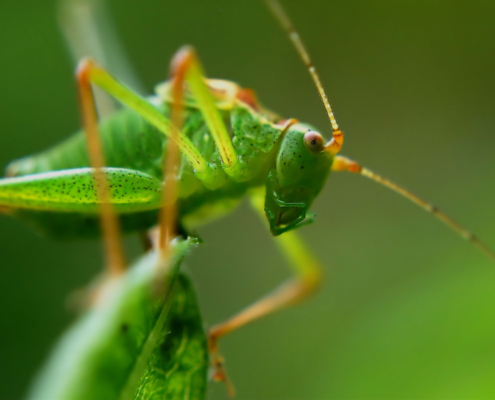 Canva Pro
https://attra.ncat.org/wp-content/uploads/2022/08/grasshopper.png
900
1200
NCAT IT
/wp-content/uploads/2022/06/ATTRAlogo_RGB-340x156.png
NCAT IT2022-06-27 12:08:472023-02-13 08:41:09Grasshopper Management
Canva Pro
https://attra.ncat.org/wp-content/uploads/2022/08/grasshopper.png
900
1200
NCAT IT
/wp-content/uploads/2022/06/ATTRAlogo_RGB-340x156.png
NCAT IT2022-06-27 12:08:472023-02-13 08:41:09Grasshopper Management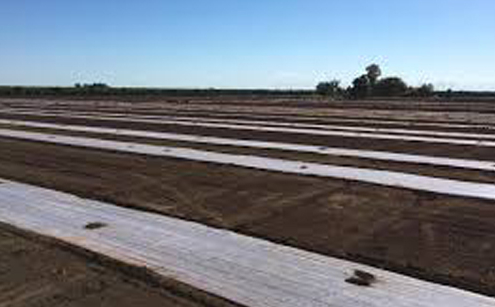
NCAT Releases Updated Tipsheets on Soil Solarization and Biosolarization
Are you struggling with weeds or pests? Solarization and biosolarization…
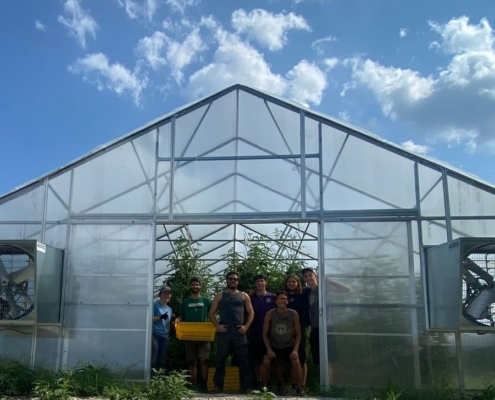
Insect Netting for Spray-Free Insect Control on Small Farms
As I walked through the high tunnels in mid-July 2020, a frustration set in that it may not be possible to grow greenhouse cucumbers without spraying them. In my previous role as Farm Director at Hip Peas Farm, a peri-urban microfarm in Hooksett, New Hampshire, we had a demand for greenhouse cucumbers. These pests presented a huge problem for us, as we were attempting to be a completely spray-free operation.
Dan Birnstihl, NCAT Sustainable Agriculture Specialist
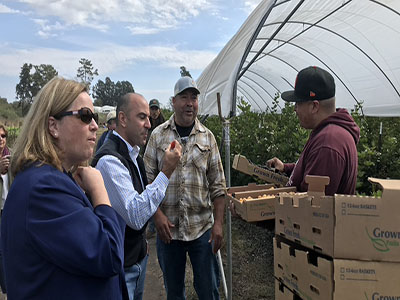
Farm Visit to JSM Organics with Congressman Panetta and Under Secretary Moffitt
Staff from the National Center for Appropriate Technology’s (NCAT) ATTRA sustainable agriculture program had been planning for months to create a video tour of JSM Organics, one of the Latino-owned farms featured in this year’s Latino Farmer Conference.
By Ann Baier, NCAT Sustainable Agriculture Specialist
By Ann Baier, NCAT Sustainable Agriculture Specialist
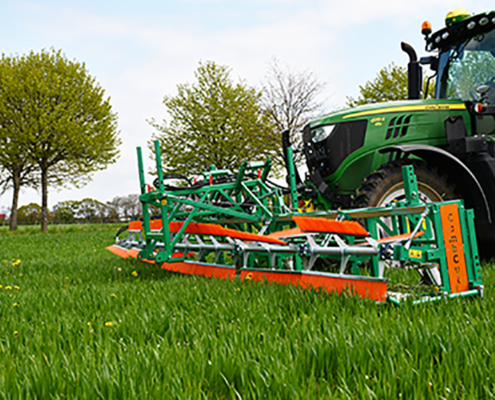
Combcutting: An Innovative Approach for Reducing Broadleaf Weeds in Small Grains
When a small grain crop like wheat, oat, barley, or rye is in the vegetative growth stage and prior to stem development, the crop’s leaves are very flexible. Broadleaf weeds like Canada Thistle growing within the vegetative cash crop generally have a stem, which continues to get thicker and stiffer as the weed matures. Combcutting technology uses a series of stationary knives that are set at a specific angle and distance from each other.
By Justin Morris, Regenerative Livestock Specialist
By Justin Morris, Regenerative Livestock Specialist
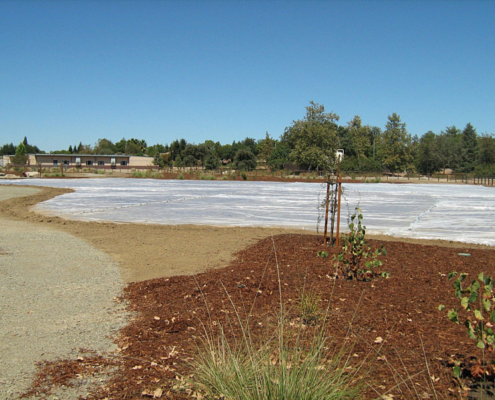
Solarization and Biosolarization: Harnessing the Sun and Organic Matter to Control Weeds
Biosolarization is an innovation in the realm of weed control.…
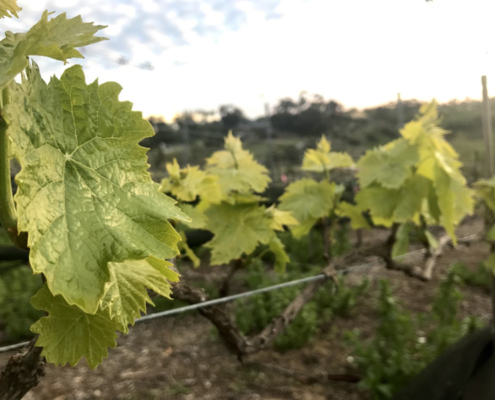
A Spring IPM Toolbox for Controlling Powdery Mildew in Vineyards
Powdery mildew has plagued vineyards since time immemorial. If temperatures reach between 70 and 85 degrees, chances are, powdery mildew has woken up from its slumber and is ready to infect your grapes. When left unchecked, this fungus can reduce vine growth, sabotage yields, and reduce fruit quality. There are all sorts of practices in our integrated pest-management toolbox that we can use to control powdery mildew. Prevention is always number one, but there are plenty of mitigation strategies we can employ as well. Here are some good examples:
By Katherine Favor, NCAT Sustainable Agriculture Specialist
By Katherine Favor, NCAT Sustainable Agriculture Specialist
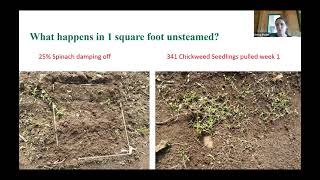
Soil Steaming for High Tunnels
Soil steaming on farms is an emerging technology that is being…
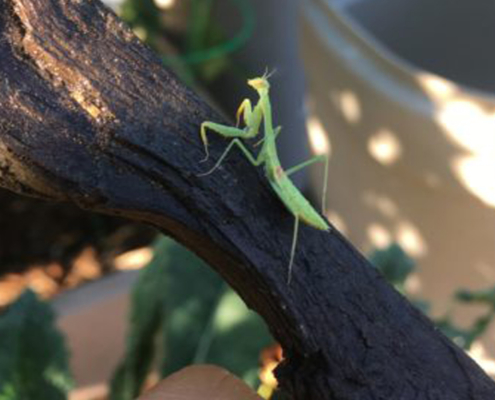
Exploring the Garden for Beneficial Insects!
Like many, during these challenging times, I’ve turned to home gardening! I’ve used gardening as an opportunity to reconnect with nature and clear my head, all while staying close to home during the quarantine.
By Jamie Fanous, Sustainable Agriculture Specialist
By Jamie Fanous, Sustainable Agriculture Specialist
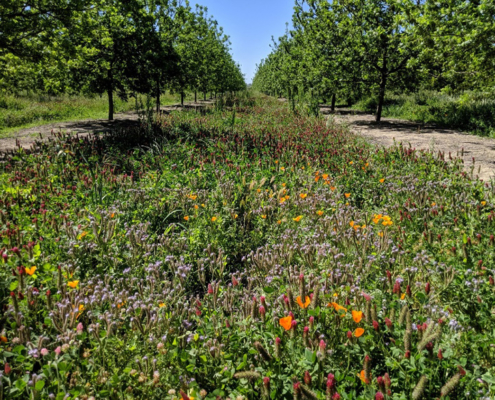
Creating Habitat for Beneficials to Control Aphids in Pecans
For the past growing season, my staff and I have been involved with designing and managing a cover crop mix in pecan orchards in Northern California to attract beneficials, which provide some control of two species of pecan aphids.
Rex Dufour, NCAT Sustainable Agriculture Specialist
Rex Dufour, NCAT Sustainable Agriculture Specialist
Freshly Picked
- Dairy Runway Program Open to Northeast Food Entrepreneurs
- NOFA New York Accepting Session Proposals and Organic Farmer Nominations for Winter Conference
- Digital Tools to Aid Soil Health Monitoring
- Researchers Examine Agricultural Water Conservation Strategies
- Rangeland Ecology Course Offered Free, Online
NCAT Websites
Get Help
Ask an Ag Expert
Call us: 1-800-346-9140
Visit the Forum
Don’t Miss!
National Center for Appropriate Technology
Helping people build resilient communities through local and sustainable solutions that reduce poverty, strengthen self-reliance, and protect natural resources.

